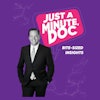Dear DrBicuspid Member,
Some of our most popular stories in 2008 have involved the more serious sides of dentistry -- lawsuits, economic concerns, academic gaffes, lapses of judgment, and unfortunate missteps. But we also feature regular clinical research and product news intended to shed light on the latest developments and innovations in dentistry and how they might affect your practice.
This week, for example, Senior Editor Laird Harrison found that dentin sealing is gaining favor, even though it contradicts what most dentists learned in dental school and adds another step to the process of placing an indirect restoration. In fact, a growing chorus of researchers says it's worthwhile to seal dentin before placing a temporary. Read more.
Meanwhile, Assistant Editor Rabia Mughal tackled two equally important research developments: the relationships between periodontal and systemic diseases and between oral bisphosphonate therapy and osteonecrosis of the jaw.
Recent studies point to inflammation as the link between periodontitis and cardiovascular diseases such as atherosclerosis. Does this mean some patients should receive more aggressive periodontal treatment? Find out here.
Meanwhile, a new report from the ADA concludes that, while the chance of patients developing osteonecrosis of the jaw from oral bisphosphonate therapy remains low, patients at risk should still receive special consideration when in the dental chair. Read more.
On a lighter note -- well, for some anyway -- a report published this week by American City Business Journals found that dentists who live in Charlotte, NC, make more money than dentists in any other city in the U.S. Find out why, and where your city and state rank, here.
Meanwhile, after a recent trip to Tokyo, Talking Pictures columnist Dr. Allan Farman ponders whether it is time to reconsider the full-mouth series. If the number of images is reduced, thus decreasing patient dose, is too much diagnostic information lost?
And marketing expert Richard Geller discusses "trigger words" and the sometimes inadvertent impact they can have on patients. If you know what words to avoid, you can communicate more effectively, get higher case acceptance, and create a better experience for your patients. Read more.
With the holidays just around the corner, here's wishing you and yours all the best!















